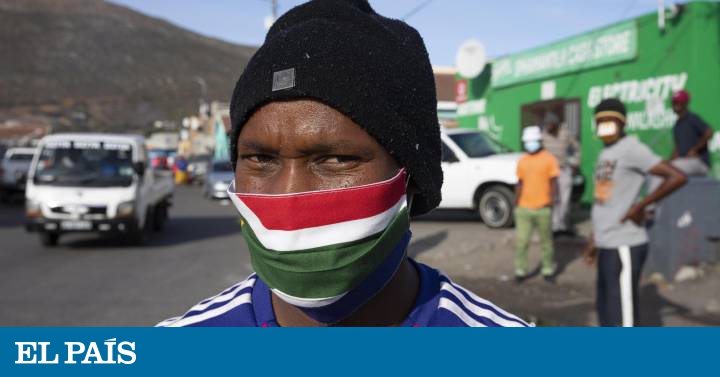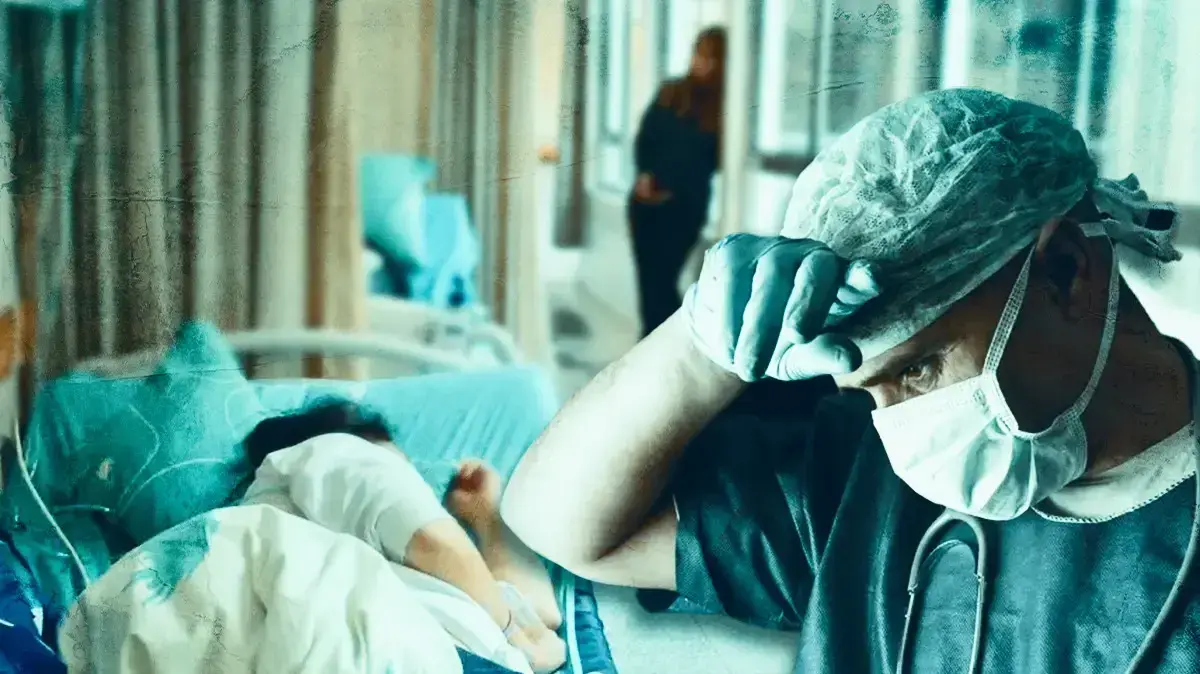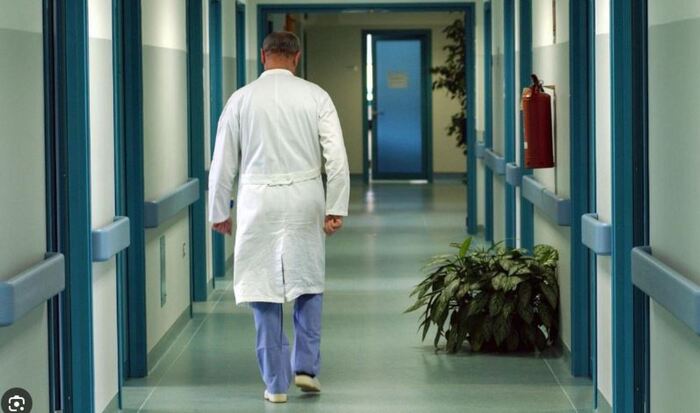Chaos, speculation, contraband, are some of the pearls that have qualified the medical equipment market in recent weeks. A kind of global auction in which 185 countries around the world bid, to access limited production. The save yourself who can, the law of the strongest (and the richest), anything goes, tripping and abuse have replaced any other guideline in that savage and stark showcase of the law of the market. And countries with meager resources but similar needs are approaching the same scenario. In the face of scarcity, African maker communities (technology craftsmen) have been quick to mobilize to mitigate the blow of the lack of protective sanitary materials.
MORE INFORMATION
- The fight against covid-19 in Africa that comes via mobile
- How African cyberspace has reacted to the coronavirus
- The digital and street mobilization never seen in Guinea
“This time, our administrations cannot buy materials abroad because everyone has the same needs and is ordering the same products. Nor can experts come from abroad, as they have done on other occasions. Now we can only count on our own resources and in this context the makers in Africa have reacted actively to give context-adapted responses to those needs and using what they have at their disposal to produce the solutions. ” Who explains the situation is Gildas Guiella, the person in charge of WakatLab, an innovation space in Ouagadougou where, above all, protective visors for health personnel have been produced, more than 500 that have already been delivered to different medical centers, but An attempt is also being made to develop a low-cost respirator model and automatic hydroalcoholic gel dispensers.
In reality, the communities of these artisans of technology have mobilized across the continent. Protective visors are printed on 3D printers, more or less, manipulated, from Nouakchott to Kinshasa. Automated gel dispensers or other systems for hand washing are designed in N'Djamena or Dakar. And low-cost respirators Bamako or Ouagadougou are prototyped. All seeking to provide local responses to the lack of material to deal with the covid-19 epidemic. Some of the pillars of these groups are those that give special value to their response at the present time: their vocation to seek imaginative and creative solutions, using the materials at hand, to develop low-cost technology and share knowledge open to try to generate a collective intelligence at the service of the common good.
"We can do a lot with little and we can do it together", says Médard Agbayazon, head of BloLab, an innovation space located in Cotonou, the capital of Benin. From this laboratory where 3D printers work at full capacity to produce masks for the population and masks of protection for health personnel, Agbayazon explains: "In this pandemic, in Benin and in Africa, in general, we are sure of one thing:" No one is going to help us with medical supplies because they are needed in all countries. So we have thought that we have to try to produce it locally. ” For this young Beninese, the values and experiences of his community are useful in the face of this crisis: “We can produce high or low technology, with the machinery that we have in our fab lab, but above all, for the culture that moves us: the Do it yourself and Do it together . With our collaborative nature, we share diagrams and files (as in the case of masks, masks and other elements). We continue to show solidarity, we manufacture and we do it with existing resources. ”
The constant response to an urgent need and doing it "with local materials" is what encourages groups of artisans in different African cities to seek solutions for the scarcity of respirators in most health systems. They have been done by a group of artisans of technology in Togo or in Cameroon, although still without all the medical checks. At SenFabLab, another innovation space, in this case, located in Dakar, the Senegalese capital, they are also working among other projects on a prototype respirator. "There is nothing we can do but make our own devices," says Modou Ngom, the head of this manufacturing laboratory. "Borders are closed and air travel is very complicated, so now is when we can demonstrate the value of our experience in conditions of material shortages," says Ngom.
Respirators have become the ultimate goal for many of these communities. So much so that the members of DoniFab, a space located in Bamako, the capital of Mali, have launched an initiative to raise the necessary funds to build 20 for this country. His manager Youssouf Sall, remembers that the social commitment is not new. “We have always proposed solutions to the daily problems of our communities. In the midst of this global crisis, it was more necessary than ever that we show our neighbors that they themselves have the capacity to contribute, ”Sall defends. That is why, in addition to the prototypes of respirators, in this laboratory of technological artisans, a mechanism for hand washing has been developed, with water, soap and hot air, but also a disinfectant vaporization system designed for access doors to buildings, such as markets or hospitals.
Manufacturing labs everywhere
The experiences are extended and multiplied, the most recurring production is that of masks and protective visors, thanks to 3D printers and shared schemes. In this way this activity is carried out in manufacturing laboratories such as those already mentioned, but also in others, in Kigali, the Rwandan capital; in the Nigerian city of Ibadan, in Yaoundé, the capital of Cameroon, or in Abidjan, the largest city in the Ivory Coast, for example.
Most of these communities are in contact and share knowledge. "The visors we are making", Gildas Guiella explains from Ouagadougou, "is the open source model that is being distributed worldwide, but we have adapted it to be able to make three in the time it takes to make one. We have worked on the model that existed to reduce the consumption of material, energy and time. And we have shared our progress with communities in Cameroon, Ivory Coast, Benin and other countries. "
These groups working with multidisciplinary teams have now sought the complicity of experts in the health field to know exactly what the needs of health professionals were in the face of the crisis. The members of the Clintonel Innovation Center in the Nigerian city of Aba have made searching for these synergies one of their priorities. "One of the fab lab's strengths," says Médard Agbayazon, "is the diversity of their communities. In the BloLab community, for example, we have developers, farmers, geographers, doctors, or teachers. For medical materials manufacturing projects against Covid19, for example, doctors work with us and are involved in the entire process, from design to prototyping. ”
Experiences are extended and multiplied, the most recurring production is that of face masks and protective visors, thanks to 3D printers and shared schemes
In this sense, Guiellas has found a substantial change. “Until now there was a gap between the people who had the experience, that is, in this case, the people who had the specific knowledge in health and the makers , who work locally to develop solutions. We did not have the credibility for these experts to approach us, "says the person in charge of WakatLab. However, today we are developing synergies with many sectors of society. Today if you need a doctor to work on a solution you find a very good disposition, they are the most open people, despite the fact that it is the worst time and they have less time to dedicate, to give you the precise explanations of what you need. They are really in a situation of material shortage and they know that collaborating is the first action that can allow them to find solutions to their needs, ”concludes the Burkinabe.
Guiellas regrets that this connection has not occurred before: "We could have developed solutions to problems that already existed, because the need for respirators has always existed, I cannot imagine how many people have died because there were not enough respirators." Despite this situation, the Burkinabe continues to look forward and is already pointing to the next phase of this process of local construction of solutions, taking as an example the elaboration of the visors. If the situation persists, at some point the thermoplastic materials used for 3D printing may start to be scarce or, at least, difficult to obtain. "We are starting to work on even more local models, so that when we no longer have more raw material available, we can continue producing visors," he warns.
You can follow PLANETA FUTURO on Twitter and Facebook and Instagram, and subscribe here to our newsletter.









